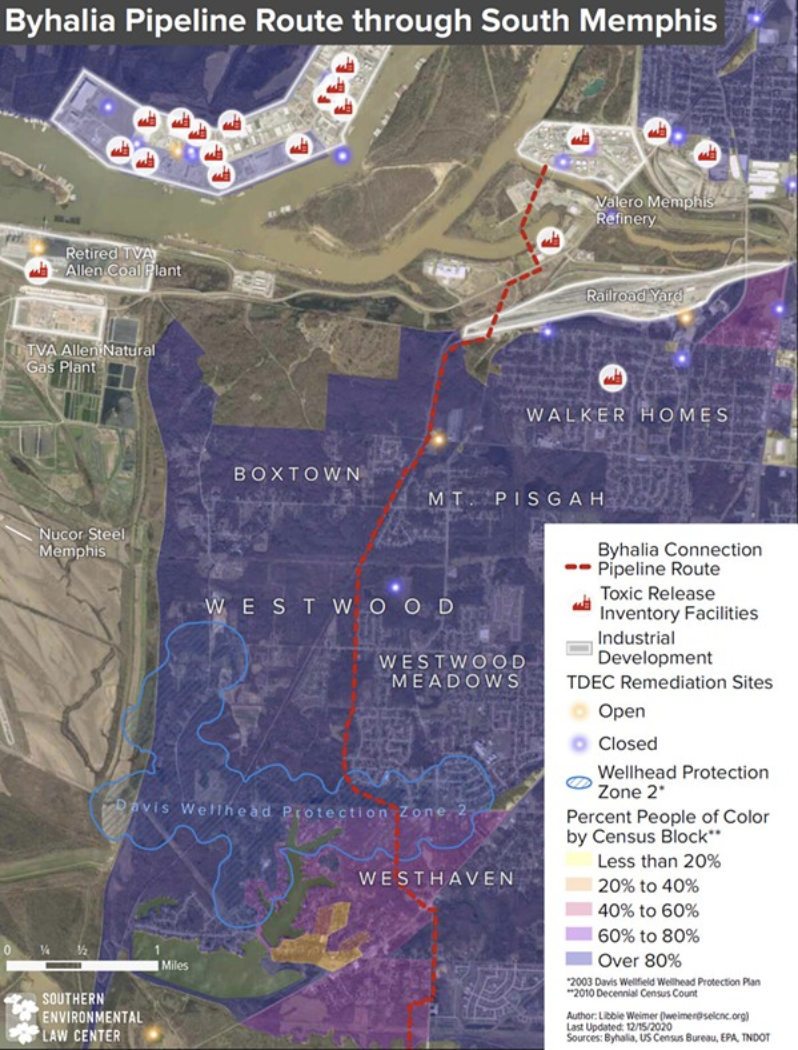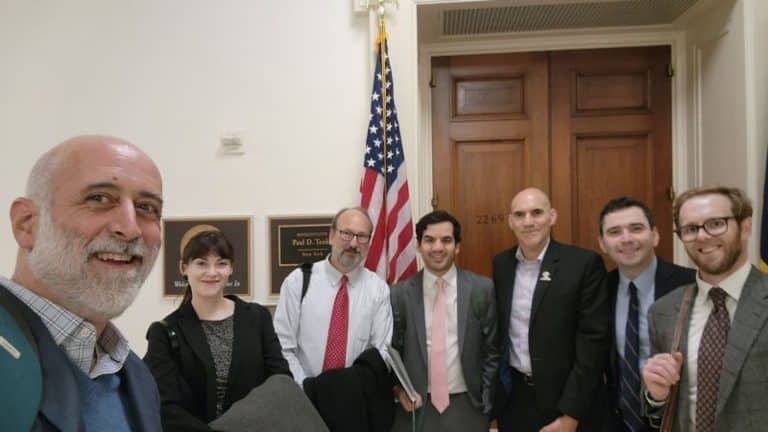Brady Watson, former Civic Engagement Coordinator for the Southern Alliance for Clean Energy, also contributed to this blog post.
Update: At their April 6th meeting, Memphis City Council approved on second reading an ordinance that will grant that body more oversight of the Memphis Sands Aquifer, the region’s source of drinking water. To be enacted, this ordinance will need to pass again on the third reading at the next City Council meeting on April 20th. That meeting may be viewed here.
We at SACE are eager to usher in the era of clean energy and electric transportation, so we are working to improve the way we produce and consume energy in order to reduce carbon emissions. We recognize that in order to combat the climate crisis, we must shift away from burning fossil fuels and power our vehicles with clean electricity instead. This transition from gasoline to clean energy will curb pollution, increase public health, and create good jobs.
So naturally, the idea of a brand new crude oil pipeline cutting through predominantly Black, lower-income neighborhoods in Southwest Memphis that are already disproportionately burdened by fossil fuel infrastructure does not sit right with us. To learn more about this project, and SACE’s opposition to it, check out our earlier blog post.
Over the past week, Memphis City Council and Shelby County Commission each took actions to protect the community from the impacts of the Byhalia Connection, the proposed pipeline that would carry crude oil through Southwest Memphis and Northern Mississippi.

Memphis City Council Takes Decisive Action
After several delays in the weeks prior, the Memphis City Council Public Works Committee took up debate on a resolution and an ordinance related to the proposed Byhalia Connection Pipeline on Tuesday, March 16th. A resolution is simply a statement from the City Council that does not possess any language that requires action, whereas an ordinance makes actual policy changes with binding language that can require action.
The resolution was passed unanimously and formally voiced the City Council’s opposition to the Byhalia Pipeline, citing concerns about the potential impacts to the city’s drinking water source, and its proposed route through predominantly Black neighborhoods in Southwest Memphis. There was one amendment to the resolution from an earlier version that stated if the pipeline does eventually get built, that there should be a financial savings plan set up for the City in the event of a leak. Councilman Edmund Ford, Sr. voiced his desire for the resolution to be sent to County Commission for approval as well, and it was confirmed that it would be.
Next, the Public Works Committee took up an ordinance that would essentially give the City more oversight over the Memphis Sands Aquifer as it relates to pipelines and other projects. (The ordinance would require a total of 3 readings in order to be enacted – it can be viewed on page 12 of this document.) The ordinance lays out several provisions that would be required for future projects that intend to build a structure that moves or stores hazardous material in Memphis. Under the ordinance, any such company or individual proposing such a project must submit an impact statement analyzing the Memphis Sands Aquifer. It also requires the City Engineering Department to check with Memphis Light, Gas, and Water (MLGW) on possible impacts and gather comments from the public.
Ultimately those materials would then be forwarded to the Public Works Committee of City Council for their consideration.
In the committee meeting, there was quite a bit of debate on the legality of the ordinance and what kind of authority the City has over the aquifer. George Nolan of the Southern Environmental Law Center laid out several sections of state law that he believes grant the authority to the City to pass such an ordinance, specifically the Tennessee Safe Drinking Water Act. He also mentioned that when the US Army Corps of Engineers and the Tennessee Department of Environment and Conservation (TDEC) were considering whether or not to grant permits (which they ultimately did), to Plains All American Pipeline, L.P., (Plains), the company behind the proposed pipeline, they did not consider groundwater impacts, such as the Memphis Sands Aquifer, and only looked at surface water impacts. In his view, this ordinance would be an attempt to fill a regulatory gap that exists.
However, City Council Attorney Allen Wade made it clear that there were risks involved with the ordinance and that if it were passed, there would almost certainly be litigation filed by Plains. In voicing her support for the ordinance, Councilwoman Rhonda Logan stated, “I want us to look at this as Memphis. Not just black communities, or Latino communities or white communities. This is Memphis and we all have to stand up and fight for what’s right!”
In the course of the discussion at the committee meeting, many City Council members expressed concern about the legal ramifications and the potential cost of future litigation. Councilwoman Patrice Robinson raised the point that other jurisdictions, such as cities in Mississippi that also share the Memphis Sands Aquifer, should be on the same page with the City of Memphis because the aquifer is a shared regional asset and things that happen in other states could impact Memphis also. While Councilman Worth Morgan acknowledged his concerns about potential legal ramifications he also remarked, “Sometimes you just got to take on Goliath,” in reference to the deep-pocketed Plains and Valero Energy, the company partnering with Plains on the pipeline project, and who owns the refinery where the crude oil will originate from.
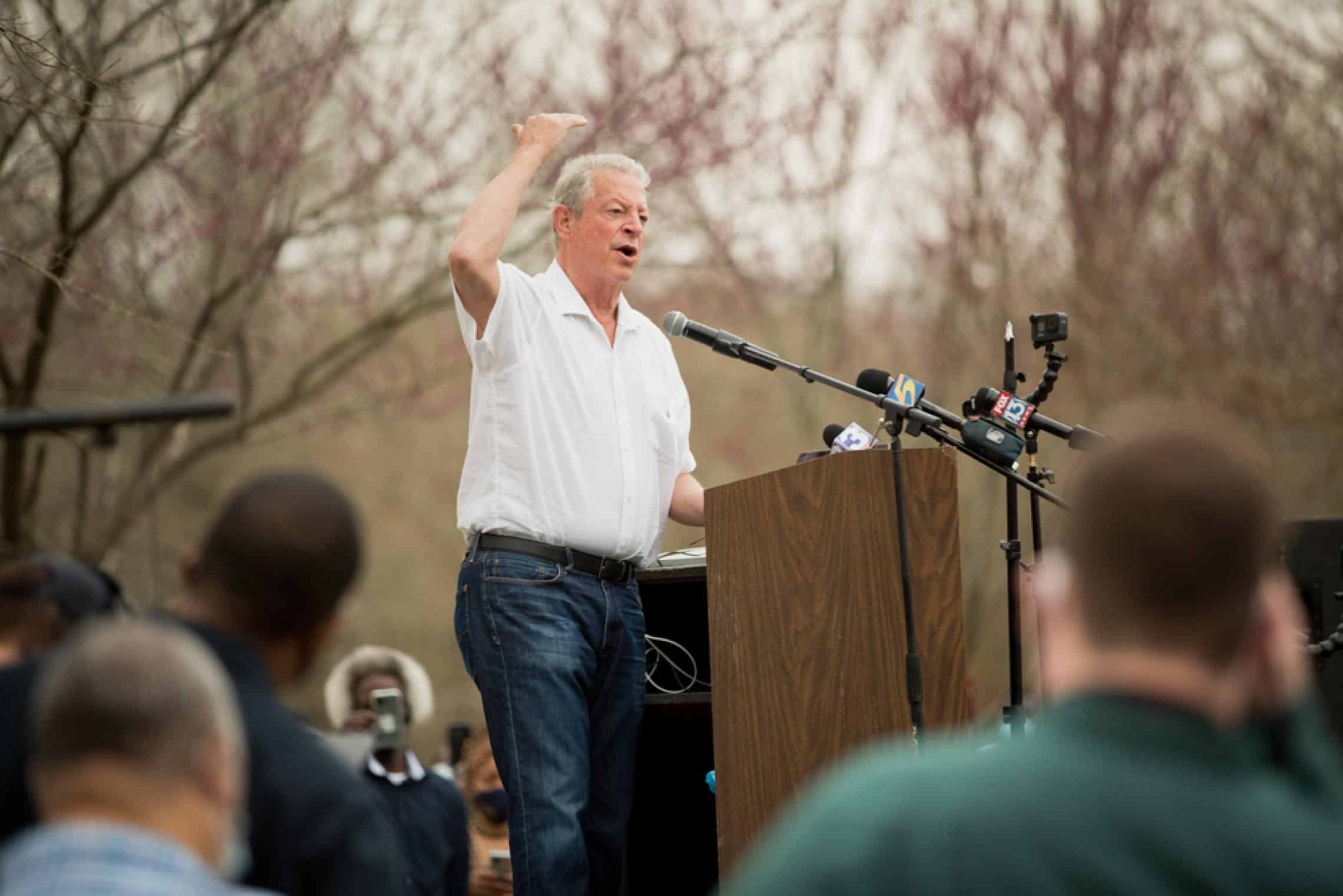
Many of the council members made reference to the overwhelming number of calls and emails they had received from the public in opposition to the pipeline, in addition to the large rally with former Vice President Al Gore that was held on Sunday, March 14th at which Councilman Jeff Warren estimated there were more than 500 people in attendance. Councilman Edmund Ford, Sr. suggested that the council could not afford to wait and that they should take whatever actions they could to fight against the pipeline. Councilman Martavius Jones shared his perspective by saying that Plains had revenues of $23 billion in 2020, Valero (the other company working on the pipeline) had revenues of $65 billion in 2020 and that the so-called “measly” $1 million dollars that had been donated to local community groups by Plains and Valero were an “insult to our community”.
After much discussion Committee Chairman Smiley suggested that a panel of experts consisting of environmentalists, legal experts, TDEC, and members of the Memphis State Legislative delegation should be convened in the coming weeks to further discuss the ordinance, and make sure it was worded as strongly as possible to ensure it would pass legal muster. Councilman Chase Carlisle asked about how Congressman Steve Cohen was engaging with the Biden Administration, specifically the Transportation Secretary, to get the project halted from the federal level. Councilman Dr. Jeff Warren stated that those conversations were ongoing, but that the administration had not issued a statement or indicated its position yet.
The council then voted unanimously (with the exception of Councilman Frank Colvett who did not vote) to pass the ordinance on the first of three readings. The ordinance will also be sent to the Shelby County Commission for adoption as well. Stay tuned for updates.
Shelby County Commission Follows Suit
The following week, at the March 22 meeting of the Shelby County Commission, there were two items under consideration related to the Byhalia Pipeline project. The first, a resolution asking the federal government to review the Byhalia Pipeline permit, already granted by the Army Corps of Engineers, failed 5-6 with Commissioners Billingsley, Turner, Wright, Bradford, Mills and Morrison voting no, and Commissioners Sawyer, Whaley, Milton, Lowrey, and Jones voting yes. Commissioner Turner abstained before changing his vote to a no.
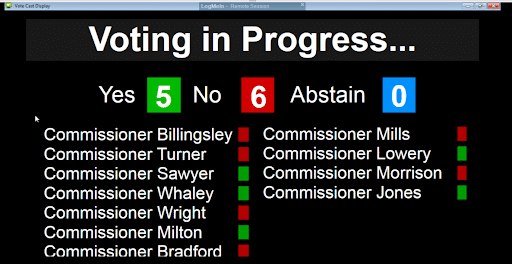
The second item was a resolution approving the sale of two county-owned properties to the Byhalia Pipeline company. Commissioner Sawyer asked her colleagues to vote against the resolution and reject the sale of land, citing the large number of public comments in opposition to it.
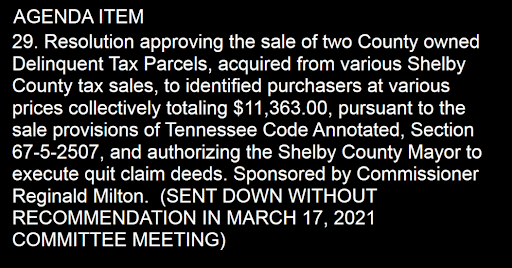
The commission took public comments on the matter, starting with Ms. Katie Martin, who spoke on behalf of Plains All American, saying the company had followed all the proper procedures and had many discussions with community members. She also alleged that letters to the editor were sent to local media outlets but that they were not printed, and that more than 8,000 letters of support were sent to elected officials, although none of the commissioners corroborated this statement. In closing, she argued that a vote against this land sale would set a dangerous precedent because she believed the commissioners would be voting no because of their feelings about Plains and the project itself, instead of selling to the highest bidder as is normally the case.
Next, Mr. Justin Pearson with Memphis Community Against the Pipeline spoke in opposition to the land sale, saying that commissioners had a chance to bring justice by voting no and to protect people, water, and land in Shelby County. He mentioned two Shelby County residents in particular, Scottie Fitzgerald and Clyde Robinson, who have been fighting to keep their land from being taken by Plains. He also mentioned the fact that Plains had given $1 million in donations to various local organizations, but that the company planned to make $7.66 billion per year once the pipeline is completed. In Mr. Pearson’s view, the community in Southwest Memphis, which has already borne the brunt of pollution and environmental racism for too long, would once again be forced to carry all the risk, with no benefits.
Commissioner Mills raised a concern that many of the people she had heard from who opposed the pipeline could not hold a conversation about it, and it seemed like they were reading from a script. She also asked Ms. Martin whether of not selling the properties would effectively stop the pipeline, or if they would instead look to take other properties through eminent domain. Ms. Martin replied that the pipeline project “would consider all options, which could affect other landowners.” Ms. Hensley, a special assistant to Shelby County Mayor Lee Harris, also gave comments reiterating the Mayor’s opposition to the pipeline. Commissioner Bradford asked whether or not the County would be opening itself up to lawsuits if they refused the sale since Plains had gone through all the proper procedures. Megan Smith, a County attorney, said that her preference would be to discuss legal matters off the record as they had not prepared a presentation on any potential liability.
Commissioners Sawyer and Billingsley both indicated their desire to vote on the resolution, with Billingsley saying commissioners had received over 4,000 letters on the issue, which was “probably the most vocal input we’ve had on any issue.” The resolution to sell the county-owned land failed by a 2-9 vote, with Commissioners Mills and Bradford voting yes in favor of the sale, and Commissioners Billingsley, Turney, Sawyer, Whaley, Wright, Milton, Lowery, Morrison, and Jones voting no.
We expect another attempt to pass a resolution asking the federal government to review the permit at a later meeting. We will provide updates as they happen. Stay tuned.
Pearl Eva Walker also contributed to this blog post. She is a Memphis resident who works on our Memphis Has the Power campaign.
MEMPHIS HAS THE POWER is a campaign to ensure Memphians have affordable, equitable, and clean energy. We are working to achieve energy justice and create a cleaner, more prosperous Memphis. The campaign has worked in the Memphis community for several years, backstopped by SACE. Our work has lifted up Memphians who struggle with unaffordable energy bills and has helped result in large increases in funding to help Memphians with lower incomes reduce their energy bills through the 2017 re-design of MLGW’s home weatherization Share the Pennies program into an opt-out format. SACE is an appointed member of MLGW’s Power Supply Advisory Team, the community advisory team helping shape MLGW’s integrated resource plan.
